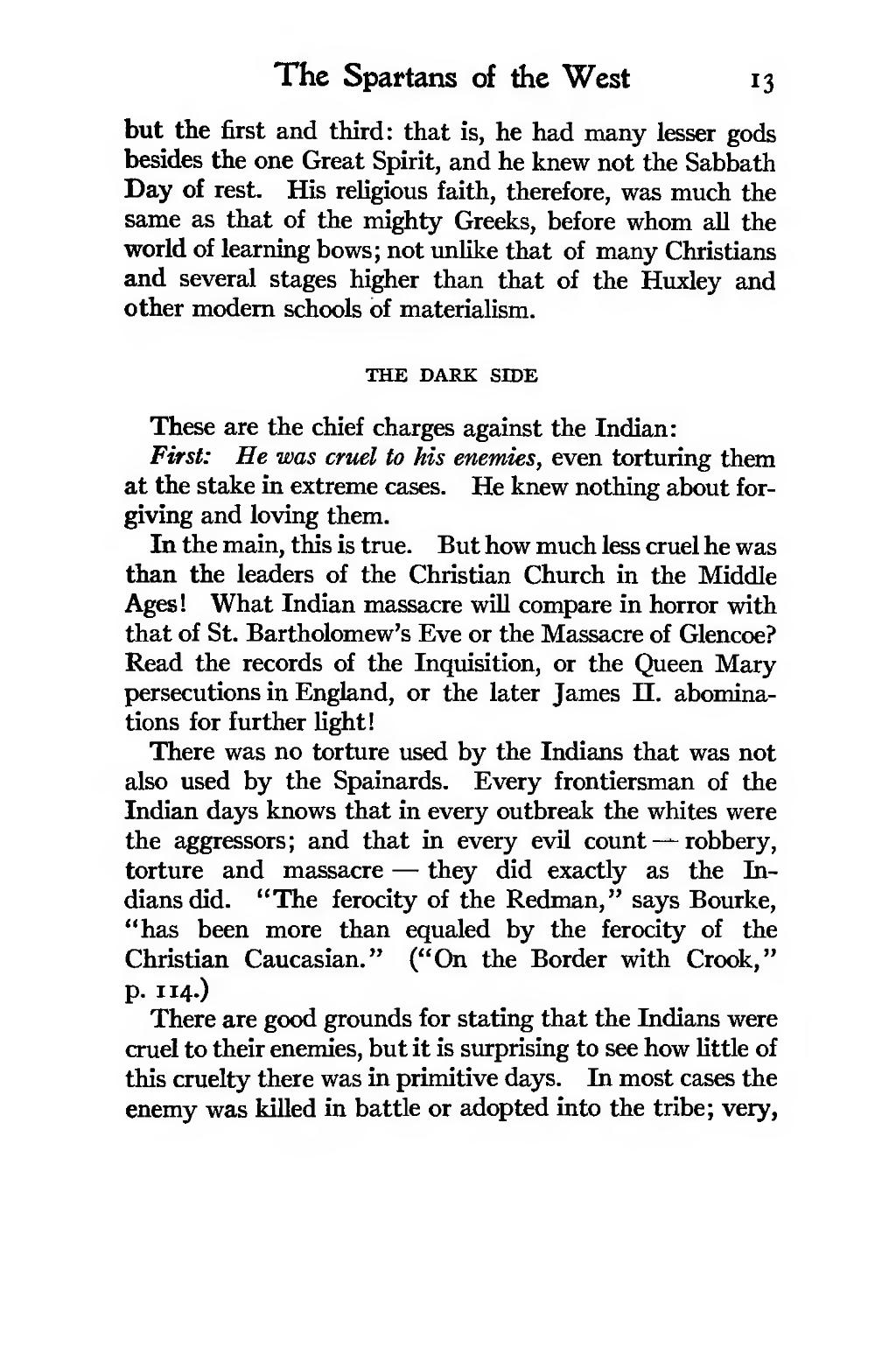Pokračování textu ze strany 34
… but the first and third: that is, he had many lesser gods besides the one Great Spirit, and he knew not the Sabbath Day of rest. His religious faith, therefore, was much the same as that of the mighty Greeks, before whom all the world of learning bows; not unlike that of many Christians and several stages higher than that of the Huxley and other modern schools of materialism.
The Dark Side
These are the chief charges against the Indian:
First: He was cruel to his enemies, even torturing them at the stake in extreme cases. He knew nothing about forgiving and loving them.
In the main, this is true. But how much less cruel he was than the leaders of the Christian Church in the Middle Ages! What Indian massacre will compare in horror with that of St. Bartholomew's Eve or the Massacre of Glencoe? Read the records of the Inquisition, or the Queen Mary persecutions in England, or the later James II. abominations for further light!
There was no torture used by the Indians that was not also used by the Spainards. Every frontiersman of the Indian days knows that in every outbreak the whites were the aggressors; and that in every evil count – robbery, torture and massacre – they did exactly as the Indians did. “The ferocity of the Redman,” says Bourke, “has been more than equaled by the ferocity of the Christian Caucasian.” (“On the Border with Crook,” p. 114.)
There are good grounds for stating that the Indians were cruel to their enemies, but it is surprising to see how little of this cruelty there was in primitive days. In most cases the enemy was killed in battle or adopted into the tribe; very, ..text pokračuje
